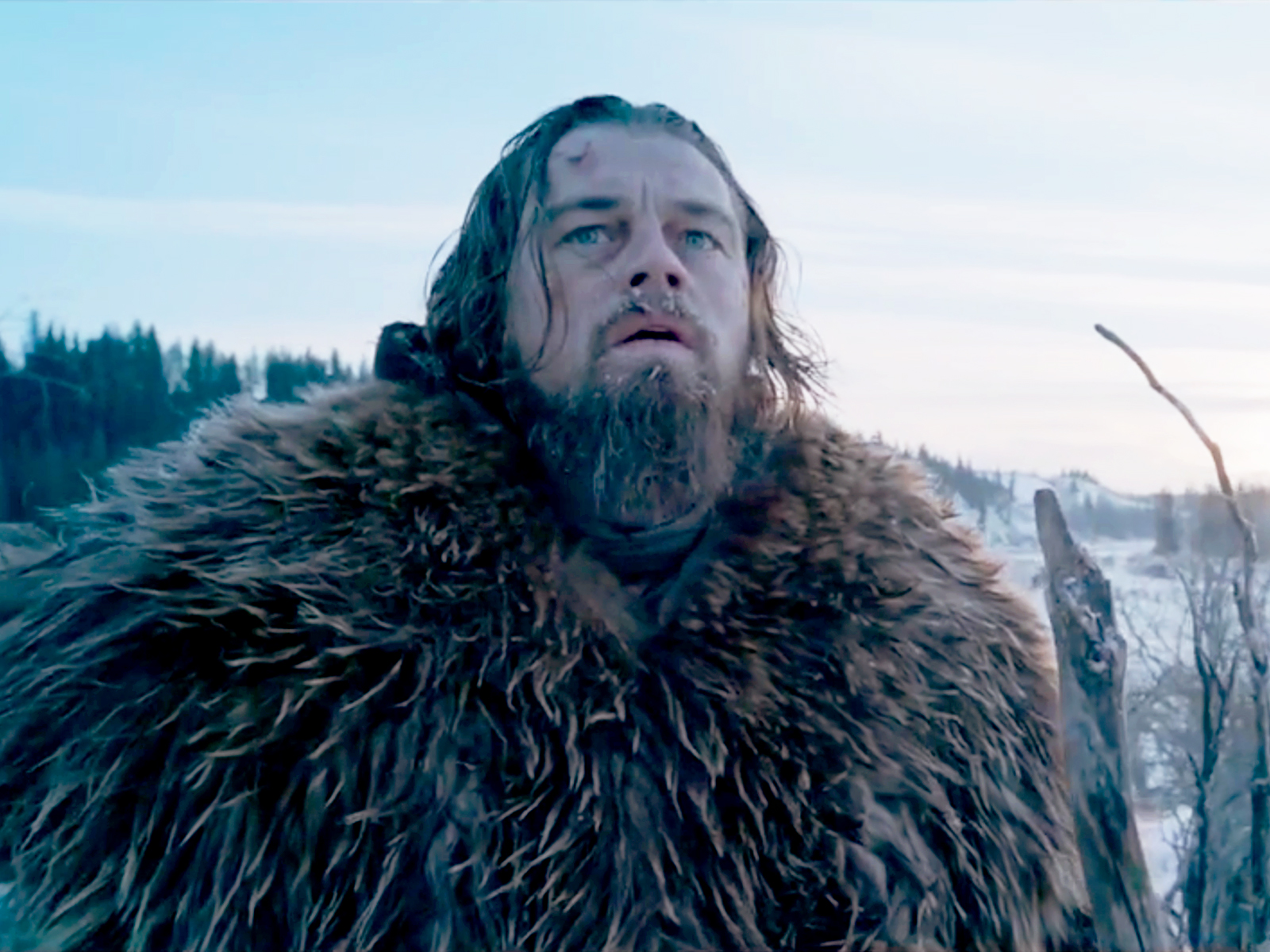By Mark Saldana
Rating: 3.5 (Out of 4 Stars)
Violence may always be a popular subject in literature and film, but it is a particularly relevant one when stories of violence constantly flood our news programs. It is also a hot political topic for aspiring public servants tying to set themselves apart from their rival opponents. Violence is a choice humans face every day in this world. It originates from our more primal animal instincts as a defensive response, but when fueled by anger, it can win against our better skills of judgment and rationality. This real human, inner conflict gets examined beautifully and intelligently in the new film by director Alejandro González Iñárritu (Birdman).
Based on the true events-inspired novel (with the same title) by Michael Punke, Iñárritu and co-writer Mark L. Smith turn a frontier survival story into an allegory on violence, and the atrocious capabilities when humanity’s primal and animalistic side takes over. Leonardo DiCaprio stars as protagonist Hugh Glass, a mostly humble and unassuming member of a hunting/trapping group seeking out pelts in a hostile wilderness territory. Glass and his part-native son Hawk (Forrest Goodluck) not only face anger and hostility from the threat of Native attacks, they also face anger and prejudice within their group in addition to the hazards of the wild.
While leading the group back to their home base, Glass gets attacked by a grizzly bear protecting her cubs. Though Glass succeeds in killing the beast, the wounds he receives in the attack leave him immobilized and at the mercy of his peers. Because Glass has to be carried, he slows down their progress home. The hunting party decides to leave him behind under the care of hunter John Fitzgerald (Tom Hardy) so that they can get home swiftly and return with a larger rescue party. Fitzgerald, who dislikes Glass and sees no reason to rescue him, decides to bury him alive and leave him for dead. Glass’ strong will to survive and avenge himself fuels him with the strength to rise up and seek out Fitzgerald.
Iñárritu has not only made an intense and deeply emotional film; he has made one that is technically and artistically beautiful. Aesthetically, the film has some of the most gorgeous cinematography of the year. Director of photography, Emmanuel Lubezki has created some truly amazing and visually striking shots that should leave audiences in pure awe. The film also has some of the most incredible action and violent sequences this year. Iñárritu, his editor Stephen Mirrone and the technical crew have really outdone themselves in composing and assembling some incredible battle and fight sequences. Inarritu is a seminal artist in his desire to use his visuals, sounds, and the performances of the cast in making an impact on the eyes, ears, hearts, and minds of his audience.
Though the dialogue in the script is limited and the movie is presented more as a sensory experience, this doesn’t mean the screenplay has no depth. This is so far from the truth. Iñárritu and Punke use the visuals, the dialogue, and the violence to convey powerful messages about the dark side of humanity and the evils of which humans are capable. The writers do exceptional work in developing their characters well, and each of the main players (including the grizzly bear) play important roles representing the many facets of human nature—both good, evil, and everything in between.
It is true, and probably should go without much saying, that both DiCaprio and Hardy deliver exceptional performances. They are backed by extraordinary supporting cast that includes Domhnall Gleeson, Will Poulter, Forrest Goodluck, Lukas Haas, and several incredible Native American actors. Di Caprio and Hardy have received multiple nominations for their performances including nominations for Golden Globe acting honors which will be awarded this Sunday (January 10).
In addition to accolades and nominations received by the lead actors, writer/director Iñárritu, cinematographer Lubezki, editor Mirrone, and score composers Ryuichi Sakamoto and Carsten Nicholai have also received nominations and awards. My only complaint, and it’s a minor one, has to do with the film running a tad longer than necessary. As incredible as most of the shots and sequences are, there are a few moments and sequences that could have been either trimmed or cut completely. Otherwise, I was truly enchanted with this film and floored by several of its moments.
Even though, it doesn’t quite make the cut for my top ten movies of 2015, it is among great company in my honorable mentions. It is, without a doubt, an extraordinary film, and a highly relevant one in an era where violence regularly plagues the world. The Revenant won’t definitely rid the world of this evil that poisons the human heart and soul, but it offers humanity a moment to pause and reflect on humanity’s violent history, as well as where our world is currently headed.
